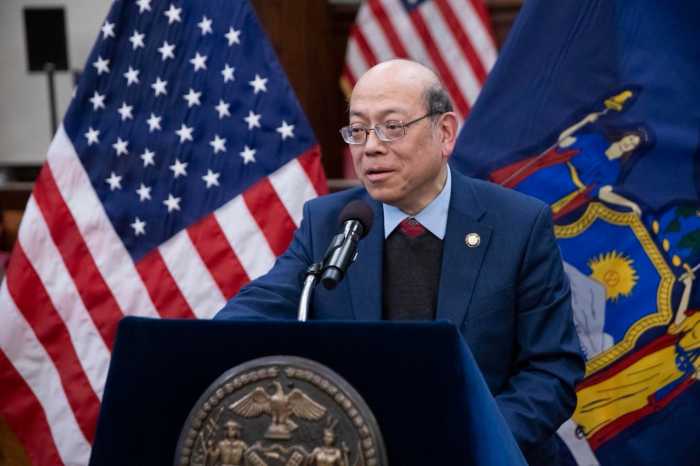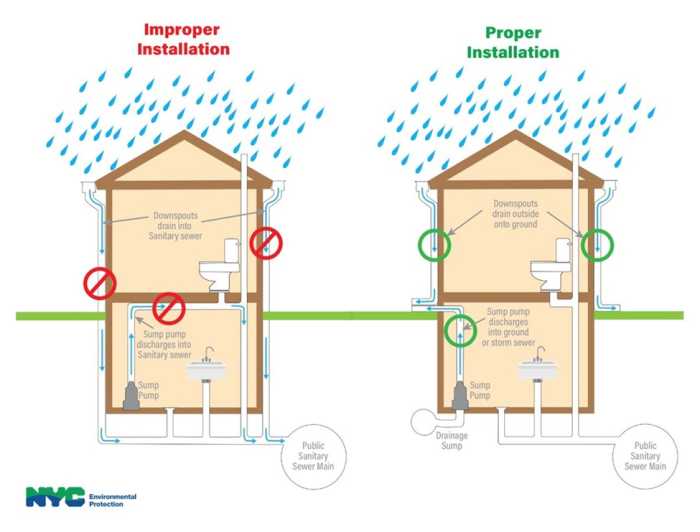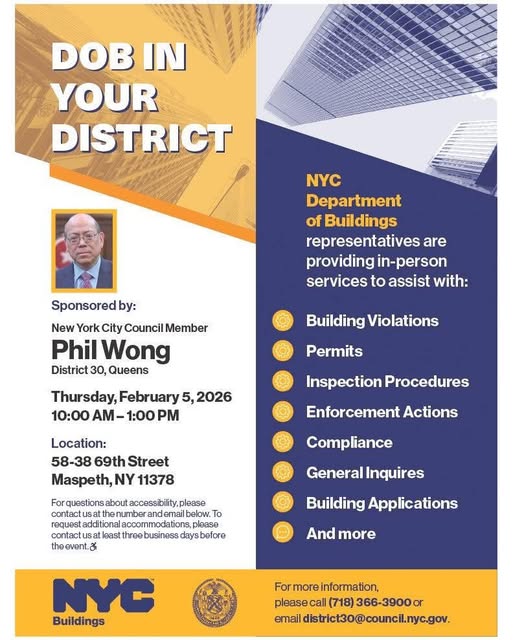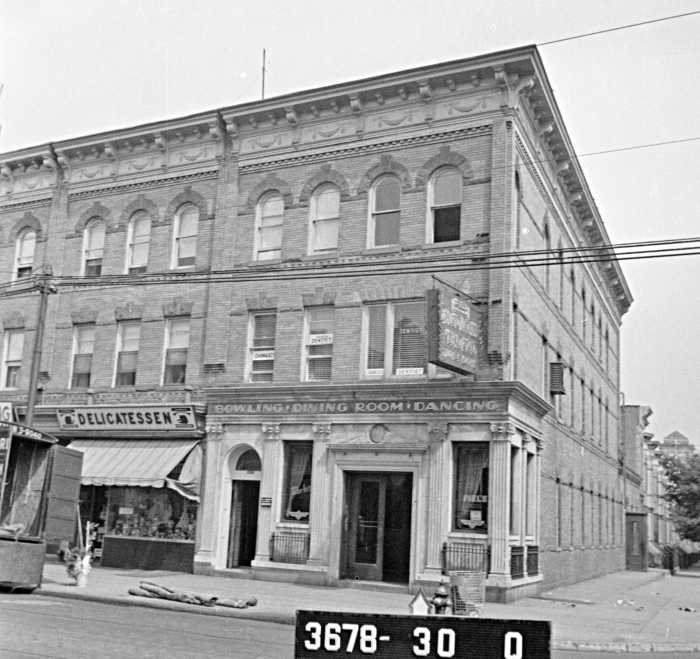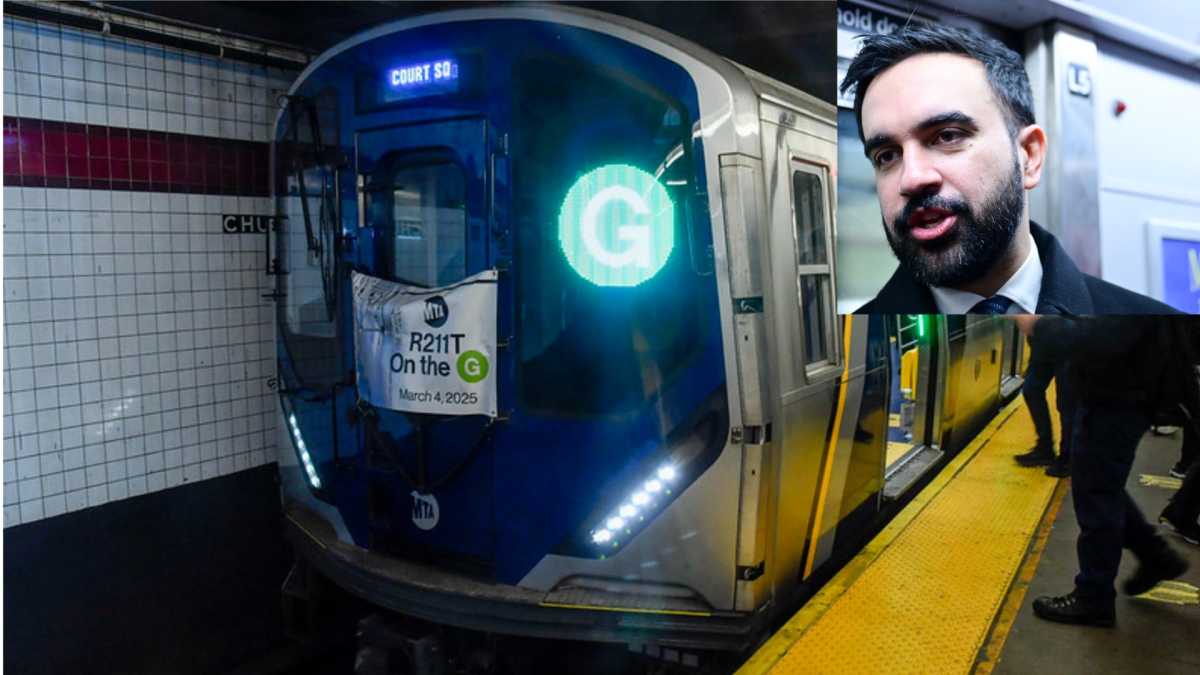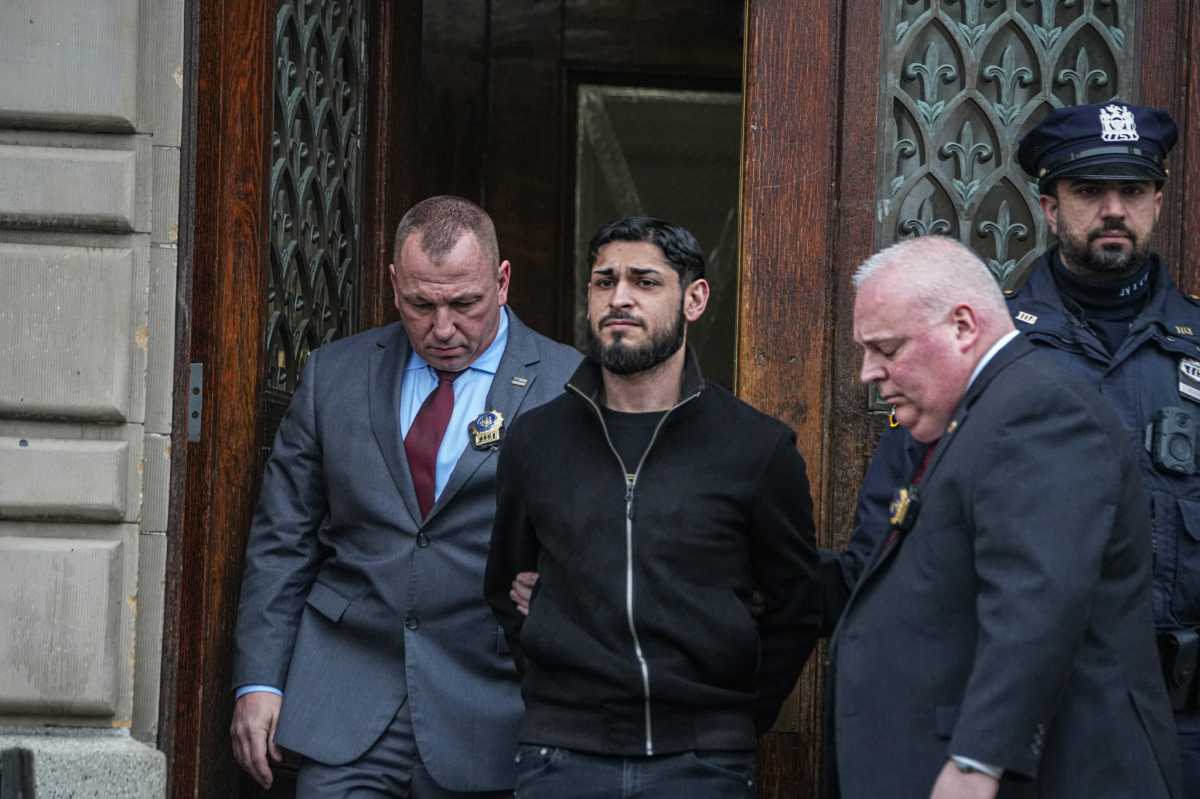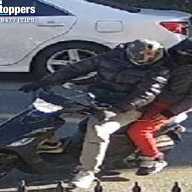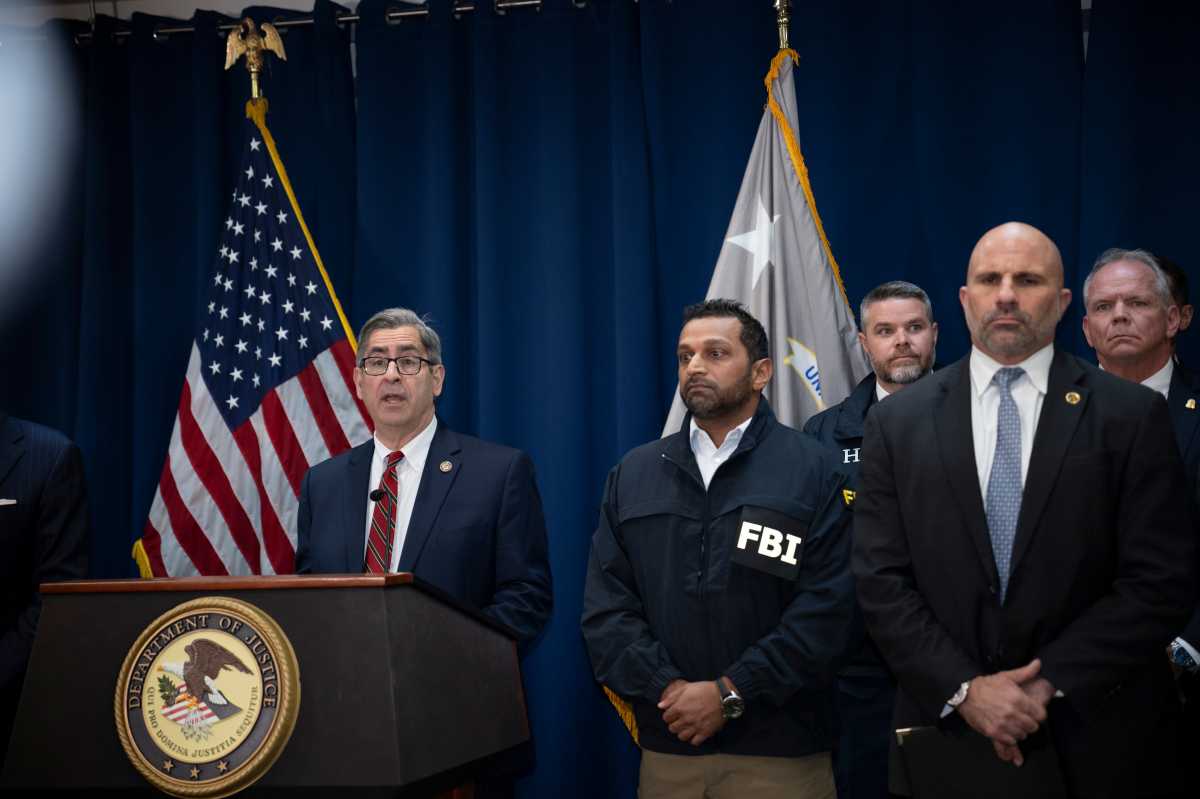A general sense of uneasiness due to the frequency in crime related incidents across the city was more than evident at Councilman Robert Holden’s public safety and quality of life town hall meeting at Maspeth High School on Thursday, March 23.
Holden gathered an extensive lineup of NYPD officials who serve parts of Queens North and neighboring residents, including NYPD Chief of Patrol John Chell, 102nd Precinct Commanding Officer Captain Jeremy Kivlin and 104th Precinct Commanding Officer Deputy Inspector Kevin Coleman.
Also in attendance was Assistant Chief of Patrol Borough for Queens North Christine Bastedenbeck, alongside the 108th Precinct Executive Officer Captain Ramnauth Ramlochan, 110th Precinct Commanding Officer Deputy Inspector John Portalatin and 112th Precinct Commanding Officer Deputy Inspector Joseph Cappelmann.
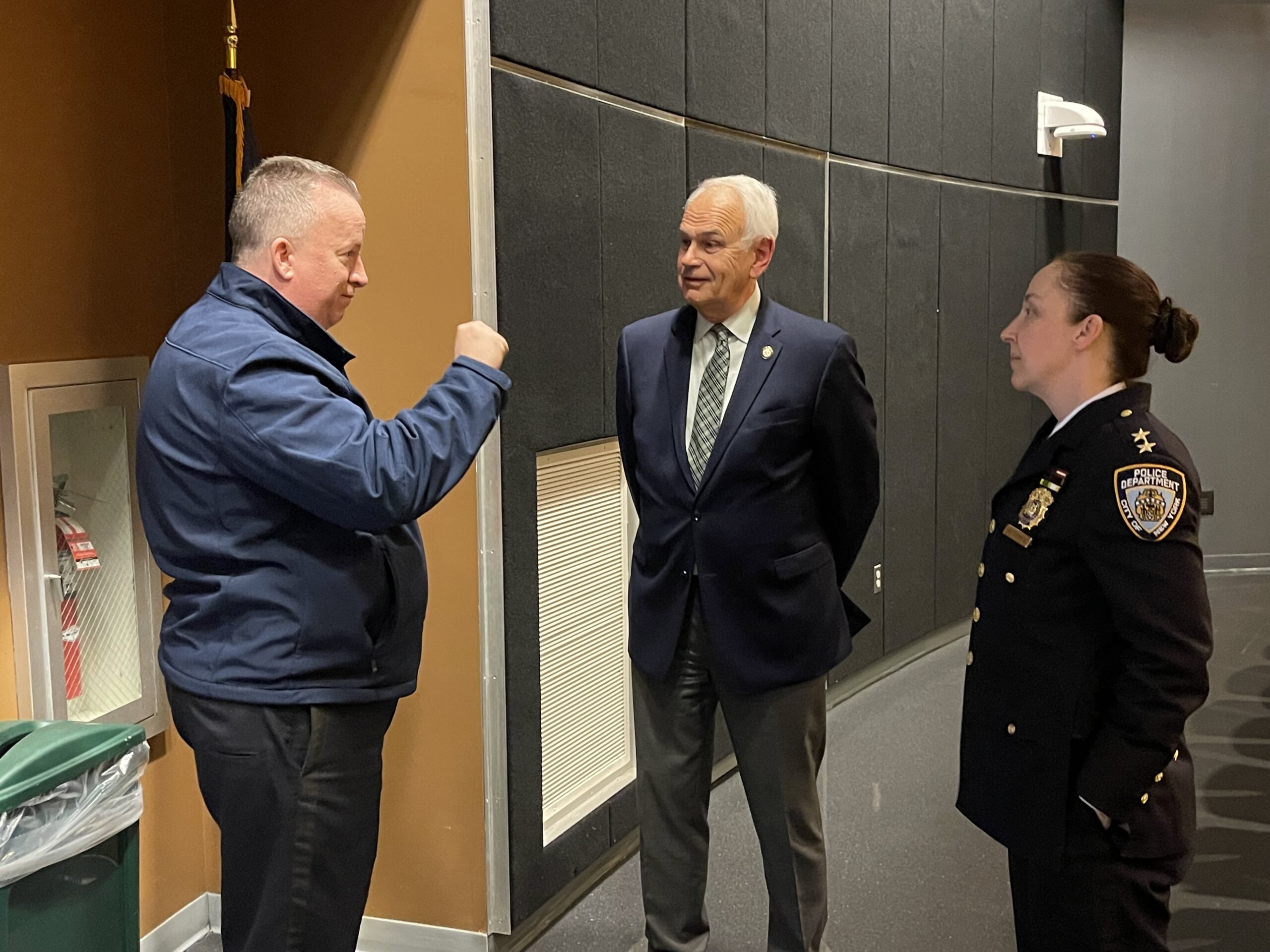
Completing the panel was Assistant District Attorney Shanon LaCorte, the director of crime strategies and intelligence at the Queens district attorney’s office.
Throughout the town hall meeting, attendees raised numerous concerns to the panel regarding general safety, reckless electric bike operators and what was described as “ghost vehicles” on city streets.
Chell said a combined total of 16,000 cars and illegal ATVs were removed off city streets last year. He also mentioned the use of critical response teams, composed of one lieutenant, two sergeants and 16 cops in every single borough focused on addressing quality of life issues across the city.
“The No. 1 quality of life issue they’ll be attacking will be again, these ghost cars, those cars with the plate covers and the ATVs. Because quite frankly, those vehicles are being used to drive up our violence as it relates to shootings and robberies. Especially these smoke shops that are getting robbed at an alarming rate.” Chell said.
Porch pirates and the theft from USPS collection boxes was another point residents emphasized to officers during the town hall.
Coleman, CO of the 104th Precinct, recognized the issue and noted efforts to thwart several top 311 complaints in Ridgewood, Glendale, Middle Village and Maspeth.
“We are the highest 311 command in the city and last year we had over 43,000 jobs of all various types,” Coleman said. “Many of the 311 jobs mentioned involved parking related conditions such as illegal parking and abandoned vehicles.”
Last year alone, the 104th Precinct issued over 11,000 summonses directly related to 311 jobs, which was 2,000 more than the combined total written by the 22 NYPD Precincts in Manhattan, according to Coleman.
“The 104 is absolutely committed to addressing quality of life issues, and actually I tell Mr. Holden all the time that one of the missions of the 104th Precinct, in addition to combating crime and increasing public safety, is that we want to improve the neighborhoods of the 104,” Coleman said.
Bail reform remained another main discussion point of the night, with many residents sharing their disdain with the amount of criminals released immediately after an arrest was made.
Most of the attendees’ concern originates from encounters with the homeless, strangers roaming private homes, and other forms of criminal mischief.
“We’re incredibly successful in Queens County in terms of when we ask for high bail amounts and remand on violent felony offenders on getting judges to listen to our applications,” said LaCorte.
But residents still weren’t convinced that enough could be done without changes to bail reform. Although many seemed to understand the limitations put on the NYPD, not being able to initiate legislative change was similar to how one participant described: “Now you’re telling us you have to eat it.”
Top NYPD officials on the panel were able to give crime prevention tips for several recurring issues including catalytic converter thefts, car break-ins and general public safety.
COs recommended keeping key fobs away from the front door inside of homes to prevent criminals from breaking into cars through use of a key fob scanner. Another suggestion was to purchase a catalytic converter cover for those cars most at risk, and purchasing an affordable Bluetooth tracker to be placed in a discrete location.
In all instances discussed, officers always suggested calling 911 as a first response to crime.


